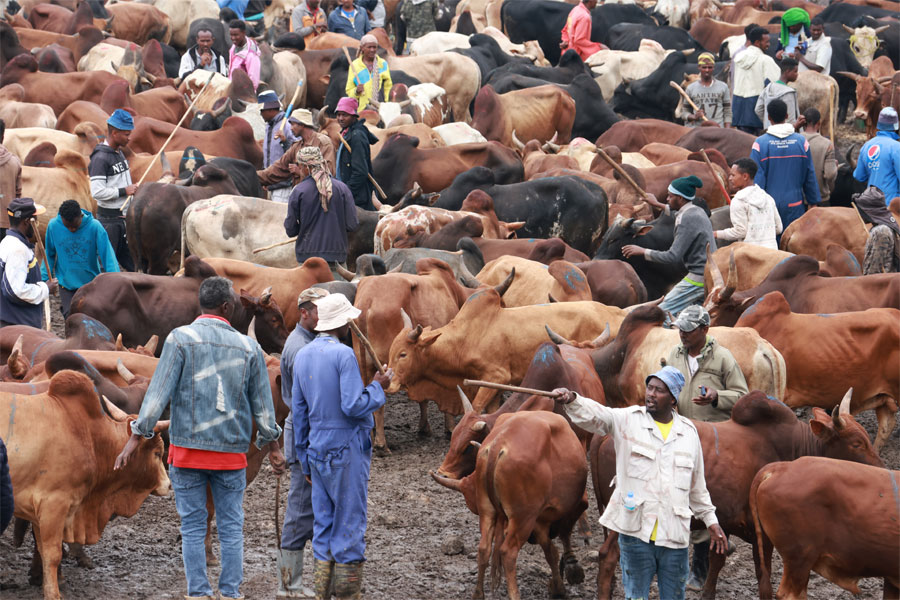
Agenda | Sep 09,2023
Near Hayat Hospital in Bole District lies a cosy and traditionally-furnished establishment dubbed Shifta Restaurant.
For an outing in the busy neighbourhood of Addis Abeba, the name – literally translated as “bandit” – may sound uncanny. On a chilly evening last week, a few dozen regulars braved the cold and sat in small circles at the establishment, enjoying refreshing beverages and Caribbean cuisine. The vegan dishes are the restaurant's specialities.
But Shifta Restaurant has gained a reputation for something else. It serves homemade beverages like tella, an Ethiopian beer brewed at home. Customers know the beverage is on the menu, seeing a long and thin stick topped with a tin can near the entrance, a symbol long used to mark traditional tella houses.
Once ubiquitous in Addis Abeba and other towns, the tella houses have grown less common as conventional beer and industrial liquor gained popularity.
However, the beverage seems to be making a comeback, suffice the scene at Shifta Restaurant.
The atmosphere was lively. Waiters rushed around a dining hall brightly lit with red neon lights and decorated with various paintings with an African motif. A supervisor stood in the back, directing the show. Laughter rang across the room as patrons made the most of an evening out. They were catching up, talking about the Easter holiday events, work and anything else that seemed interesting.
Seife Temam was among the crowd at Shifta that night. He grew up drinking tella his mother used to brew at home, a legacy that makes him consider himself a connoisseur of the traditional beverage. Seife sat at a table with a handful of friends.
He is a regular at Shifta, present at various art events and exhibitions the establishment hosts intermittently.
"Tella is a drink I feel less worried about drinking even when I am not feeling well," said Seife.
The bold flavour and the nostalgia he associates with the drink keep him coming back. Like most aficionados, Seife does not know the alcohol content in a glass of tella. But this does little to discourage his consumption, oftentimes inviting foreign guests to Shifta to let them try it out.
Though Seife's love for tella stems partly from nostalgia for the days of his youth, other patrons have other reasons for choosing the beverage.
Naod Lemma, 28, sat at a small table in the corner with a couple of friends. He finds tella affordable: A silver beaker of the stuff goes for 50 Br at Shifta. Waiters pour the drink from plastic jugs. Shifta also serves conventional alcoholic beverages. Various domestic beers are on the menu for 50 Br a bottle.
Shifta Restaurant does not offer other traditional alcoholic beverages such as tej, a sort of mead made from honey and hop leaves. Unlike Seife, Naod seldom drunk tella or other homemade alcoholic beverages such as Areqe (a.k.a katikala), a spirit with markedly higher alcohol content.
A waiter carefully handles a tray carrying two ting cups and a plastic jug of tella at Shifta Restaurant, near Hayat Hospital. The restaurant sells up to 800lt of the traditional beverage each month.
However, a few months ago, at a dinner with a friend at Shifta, he discovered he enjoyed drinking tella. He gave in to a bit of peer pressure and tried a cup.
Naod has been coming back for more since.
“The taste is amazing,” Naod said.
Tella is brewed from barley, wheat, maize, sorghum or teff. Although fermentation methods differ based on localities and economic factors, the basic process remains relatively uniform in homes. Dried and ground gesho (shiny-leaf buckthorn) leaves are essential ingredients. The brewing process also involves malt, which serves the same function as hops in beer production.
According to the World Health Organisation (WHO), the drink has an alcohol content of between two and four percent, while, if filtered, the volume could go up to six percent, according to the World Health Organisation (WHO). Tej and Areqe have alcohol contents of around seven percent and 45pc, respectively.
Shifta had initially opened its doors near the Bole Medhanialem area almost four years ago with an initial capital of 300,000 Br. It changed its address to its current location last year.
Maranata Teferi, a major shareholder and manager of the restaurant, is himself a tella lover. Initially, many of his customers would not expect homemade drinks like tella served in upscale restaurants such as his. Eventually, tella became a homemade beverage most ordered at Shifta Restaurant.
“It’s quickly becoming popular,” Maranata told Fortune.
Shifta sells up to 800lt of tella each month. This is more than double the volume the restaurant used to sell a year ago. Maranatha's success rekindled the potential of a homebrewed drink for industrial and commercial opportunities.
Other restaurants and pubs follow suit.
Sello Craft Tella, a traditional bar in the Bole Medhanialem area, and Deshesho Restaurant around Megenagna began to offer tella to patrons.
The trend reflects a traditional beverage comeback, growing in popularity among Addis Abeba’s urbanites.
Tibebu Regassa is also one who has developed a penchant for tella. He frequents an establishment on the other side of the city around Qera, near Bulgaria Mazoria, run by the Gojjam Development Association. The place hosts customers from all backgrounds, low- and middle-income groups. It was packed to the brim during a visit last week, with around half the patrons drinking tella. They pay 80 Br for a litre.
Tibebu, 35, grew up drinking the beverage at home. He sat at a table with two friends, enjoying tella and areqe. He believes the low alcohol content makes tella the ideal drink for the Easter fasting season, set to end a day before Sunday, April 24.
The growing popularity of homemade drinks like tella can partly be attributed to the rising beer and other liquors prices. Naod, who has been drinking beer since his college days, can testify. Maranata, too, has seen prices skyrocket.
Maranata used to sell a bottle of local-brewed beer for 40 Br a year ago. Prices have since jumped 25pc.
Breweries and liquor bottlers have been charging more following an amendment to excise tax laws two years ago. Bottlers were compelled to pay a 60pc tax on items used to produce liquors and an 80pc tax set on the bottles.
Over the past year, average beer retail prices have jumped three-fold to 30 Br a bottle. Retailers used to pay 460 Br for a crate of beer (24 bottles) from distributors. They now pay 100 Br more.
It is a significant setback to the massive expansion the seven breweries once had with a combined annual production capacity of 12 million hectoliters. Heineken, BGI-Ethiopia (St. George) and Dashen are the major players in the industry, accounting for two-thirds of annual production.
Simret Alemu experience indicates how much the sales volume of these breweries has been affected the more people like Naod turn their faces to homebrewed drinks put off by their prices. She owns a liquor store around Mesqel Flower, where she used to sell 25 crates of beer daily. Those days have gone, however. Simret is lucky to sell 20 crates in two days.
She noticed that the demand for beer declined drastically beginning last year. The same holds for liquor products.
The retail price for a locally-bottled gin was 92 Br two years ago. It spiked to 150 Br last week, causing anxiety among shareholders and senior managers of the 30 companies that bottle spirits like gin, vodka and cognac.
The liquor industry comprises three categories of bottlers.
Larger firms buy rectified alcohol (molasses) to produce alcohol and liquor. Others distil the alcohol to make liquor, and the remaining buy the liquor to blend with flavours. The industry, however, is dominated by eight large bottlers.
One of the major players in the local industry, the National Alcohol Factory, produced 10 million litres of liquor last year, producing around 10 labels, including ouzo, gin, aperitif, brandy, and cognac.
The remaining seven produced six million litres of liquor last year. They all struggle to keep up with growing demand.
Despite price hikes, however, alcohol consumption is on the rise.
Per capita alcohol consumption in Ethiopia stood at five litres a decade ago. This grew to close to 18.5lt in 2021, according to Fitch Solutions, a subsidiary of the Fitch Group, an American credit rating agency.
Although the proliferation of restaurants and bars which sell tella take advantage of a resurgence of the test by people like Naod, who can no longer afford to buy beer, the quality of traditional alcoholic drinks remain iffy.
“Quality is an issue in many places,” said Seife.
Other consumers agree, like Tibebu.
“There are not many places with good quality [homemade beverages]," he said.
The making and commercialisation of drinks like tella remain largely outside the purview of regulatory bodies. The federal agency is neither responsible for setting nor regulating standards has much to say about tella.
Yilma Mengistu is the Ethiopian Standards Agency's quality and production control director. According to him, tella is not an export commodity, unlike Injera, which is mainly homemade bread that requires the agency’s immediate attention.
However, the Director revealed the Agency began work to develop standards following requests from businesses and exporters.
“Although restaurants that serve tella are growing in number, we haven't received any requests from them," Yilma told Fortune.
Unlike tella, national quality standards are in place for tej, an export product growing in popularity in overseas markets, especially among the Ethiopian Diaspora.
Last year, tej with 282,000 dollars in value was shipped abroad. The US, Europe and South Africa are the major export destinations for the honey beverage, accounting for 73pc of the export value.
However, the lack of standards for tella will likely do little to deter people like Tibebu from consuming it and undermine the “great comeback” of a homebrewed drink into the mainstream market.
"It’s best for hanging out with friends and family," said Tibebu.
PUBLISHED ON
Apr 22,2022 [ VOL
23 , NO
1147]

Agenda | Sep 09,2023

Fortune News | Sep 18,2021
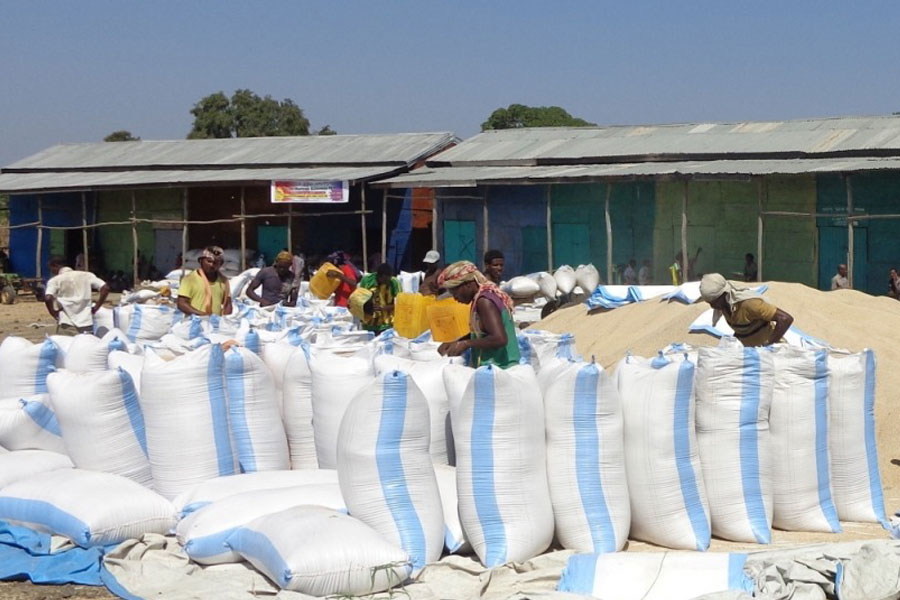
Agenda | May 13,2023
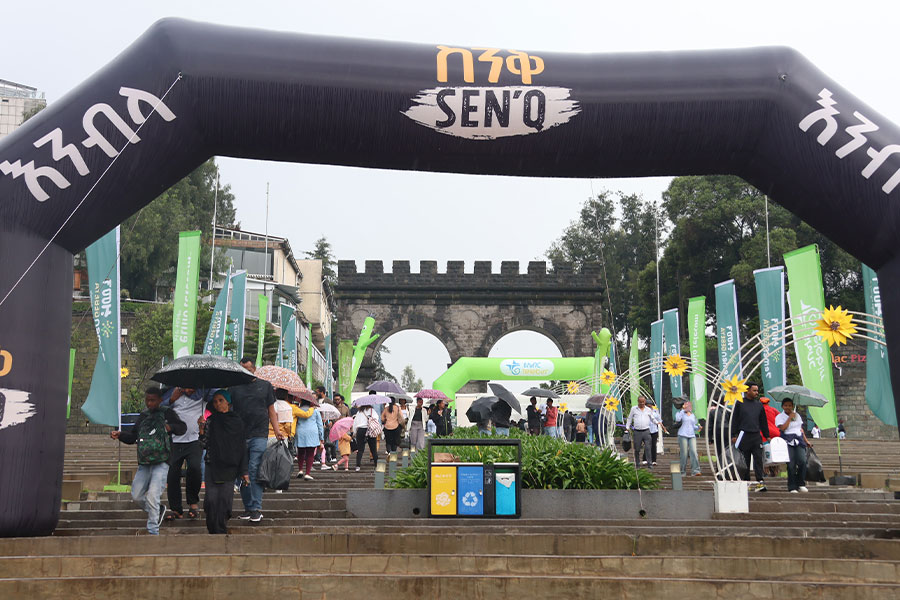
Featured | Sep 07,2025
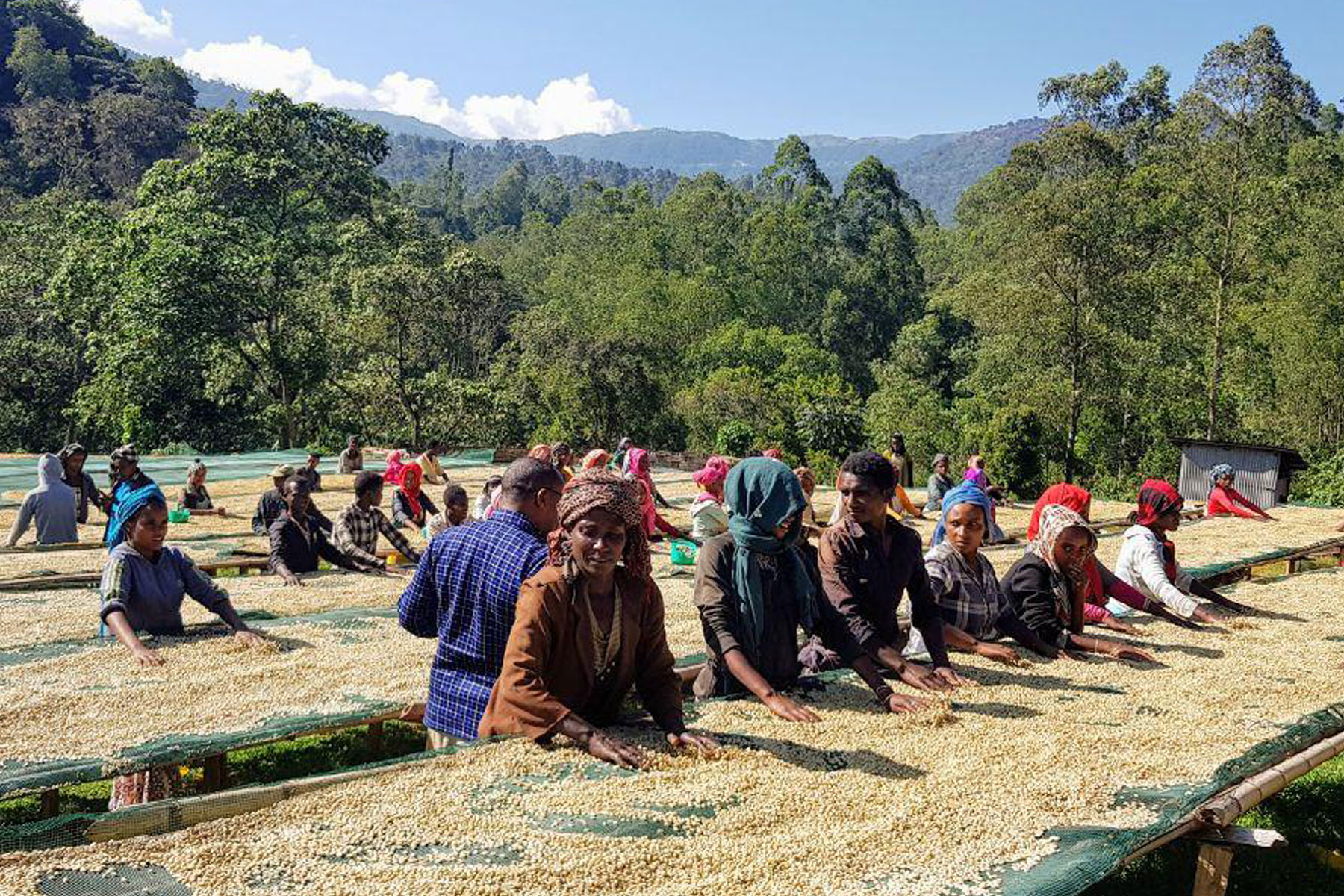
Fortune News | Apr 13,2024
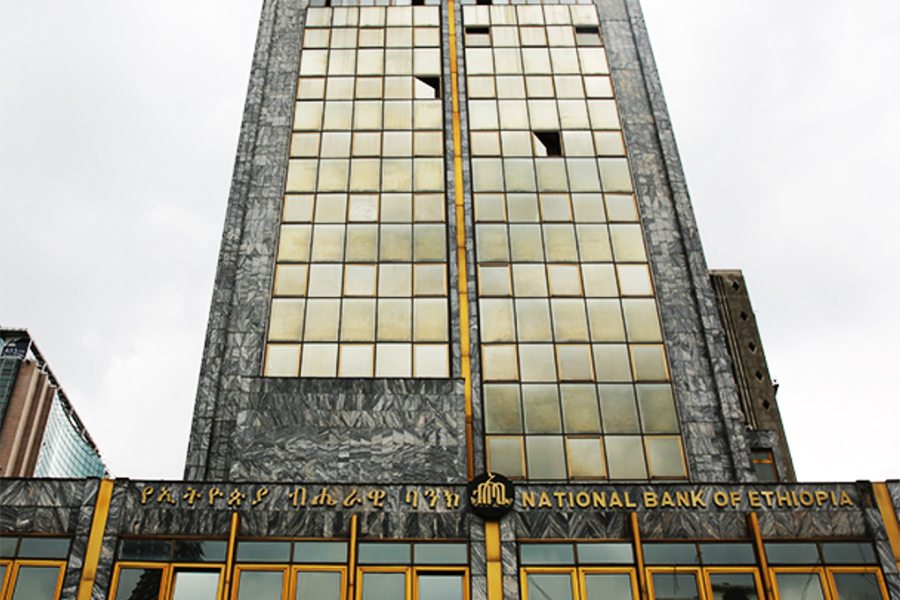
Fortune News | Sep 30,2021

Fortune News | Sep 10,2021

Commentaries | Jul 31,2021

Radar | Apr 04,2020

Commentaries | Jun 18,2022

Dec 22 , 2024 . By TIZITA SHEWAFERAW
Charged with transforming colossal state-owned enterprises into modern and competitiv...

Aug 18 , 2024 . By AKSAH ITALO
Although predictable Yonas Zerihun's job in the ride-hailing service is not immune to...

Jul 28 , 2024 . By TIZITA SHEWAFERAW
Unhabitual, perhaps too many, Samuel Gebreyohannes, 38, used to occasionally enjoy a couple of beers at breakfast. However, he recently swit...

Jul 13 , 2024 . By AKSAH ITALO
Investors who rely on tractors, trucks, and field vehicles for commuting, transporting commodities, and f...

Nov 1 , 2025
The National Bank of Ethiopia (NBE) issued a statement two weeks ago that appeared to...

Oct 25 , 2025
The regulatory machinery is on overdrive. In only two years, no fewer than 35 new pro...

Oct 18 , 2025
The political establishment, notably the ruling party and its top brass, has become p...

Oct 11 , 2025
Ladislas Farago, a roving Associated Press (AP) correspondent, arrived in Ethiopia in...